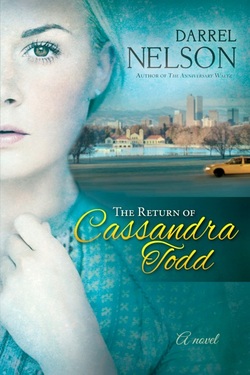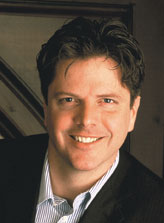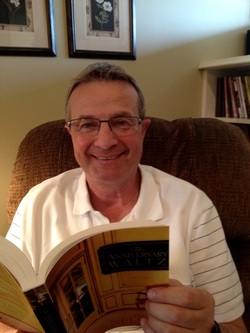 I would like to announce the release of my new novel, The Return of Cassandra Todd. Like my debut novel it is a love story, but it is a bit of a departure. Set in modern-day Denver, The Return of Cassandra Todd addresses the issue of spousal abuse and its effects on the lives of the principal characters. The back cover reads: When the popular girl whose friends bullied him in high school suddenly reenters his life, little son in tow, Turner Caldwell must put the past behind him if they are to survive. Turner Caldwell works at a local motel as a handyman while attending college fulltime. On his way to class one day, he is shocked to see Cassandra Todd and her young son in town. The sight of her brings back powerful memories of being bullied in high school—she was the popular head cheerleader and he the target of her friends’ mean-spirited pranks. When Cassandra and her son check into the motel where he works and she asks for his help in eluding her abusive husband, he finds himself entangled in a dangerous drama that will require him to forgive and draw on every skill he has if they are to survive. I was honored to have Lena Nelson Dooley write an endorsement. She said: “I loved Darrel Nelson’s debut novel, but The Return of Cassandra Todd is even better. The multilayered characters, complex relationships, and strong suspense thread kept my attention until the very last page. This one is a keeper.” Ace Collins was kind enough to write: “This tale of suspense builds page by page as a wife and little boy must depend upon the wits and courage of the ultimate underdog to escape the wrath of a man consumed by hate born of ego and desperation. This is a book that is impossible to put down and a story that lingers long after the final page has been read.” And Eva Marie Everson wrote: “I became riveted by the story line, the characters’ dilemmas, and the real-life dialogue. I read every free minute I had, often so fast I could hardly keep up with myself because of the heart-stopping action and emotion. In other words: I loved it! I’m a forever fan.” I appreciate the positive endorsements and hope readers will not only enjoy the book, but think about the issues addressed in the novel and be uplifted as well as entertained.
2 Comments
I had a wake up call last week that I would like to share. And I need to thank Martha Rogers and Lori Vanden Bosch for providing it.
Because I majored in English in university and have written novels, plays, articles, and songs for over thirty years, I thought I had a fairly good feel for sentence structure. What a surprise I received when Martha kindly looked over my most recent manuscript and pointed out a grammatical error I consistently made throughout the book. Lori, my editor, confirmed the error, and I had to do some fast editing to correct it. The error involved participial phrases (or “ing” sentences as Martha describes them). For example, Tiptoeing down the hallway, she went into the bedroom. In my mind this sentence showed a transition from one place to another. First she tiptoed down the hallway and then she went into the bedroom. Martha accurately pointed out that the sentence is chronologically impossible. You can’t tiptoe down the hallway and, at the same time, go into the bedroom. A simple fix would be to rewrite the sentence: She tiptoed down the hallway and went into the bedroom. Lori sent me an article entitled “Participial Phrase Abuse.” I swallowed hard when I realized just how I was abusing participial phrases. The article stated: “Participial phrases lend themselves to a host of grammatical ills, including dangling participles and chronological impossibilities. The most common problem associated with participial phrases is the dangling participle. Swimming in the ocean, the cool water refreshed him. The sentence, as written, tells us that the water is swimming in the ocean. Let’s fix it. Swimming the ocean, he felt refreshed. “Chronological impossibilities are also common. Consider the following sentence: Walking down the hallway, he stopped to tie his shoe. Someone cannot walk down the hallway and stop to tie his shoe simultaneously, so this sentence needs revision. A possible fix: Walking down the hallway, he noticed his shoe was untied and stopped to tie it. “When you come across one of these phrases, ask yourself two key questions: (1) Does the action expressed in the participle link up with the main clause correctly? And (2) Can these two things happen simultaneously?” Well, that’s the grammar lesson for today. A giant thanks to Martha and Lori. I am a schoolteacher by profession, but in this area I am clearly the student—a student who had to hit the books and brush up on basic sentence structure. What did I learn? I need to be on the watch for those tricky participial phrases continually. I need to use them with care and use them sparingly. And, most of all, I need to review the basics regularly. Perhaps we all do.  Funny how seemingly small things can make such a big difference in the end. I had spent several years writing a novel and had contacted dozens upon dozens of agents regarding representation. To no avail. Rejection slips piled up in quantities sufficient to wallpaper our living room. I decided to shelve the manuscript and chalk it up to the fact that it just wasn’t meant to be. Shortly after this decision, my wife and I visited our son and his family, who live in in Salt Lake City, Utah. He mentioned that he had recorded a Glen Beck interview with Richard Paul Evans. My son knew I had read all of Mr. Evans’s books and would be interested in the interview. I was. During the interview, I was impressed by Mr. Evans’s account of the adversities he had faced in his own life and how he was working through them. No one is free from challenges, he explained. As the interview continued, a determination came over me not to give up. Not to shelve the manuscript and chalk it up to a “learning experience.” I decided right then and there to rework the manuscript once more and try again. When I returned to our home in Alberta, Canada, I did just that. I spent six months rewriting the manuscript and trying to instill in my characters the courage and determination that inspired me that day as I watched the interview. After completing the manuscript, I sent out another batch of letters of inquiry to agents. Within two hours, an agent contacted me to say she loved the story and wanted to sign me to a contract. After a journey of years, The Anniversary Waltz was finally published in May of 2012 and is receiving encouraging reviews. My second novel is scheduled to come out in the spring of 2013, and I am negotiating another two-novel contract at this time. And to think it almost didn’t come about. Thank you, Richard Paul Evans. If not for your interview, my manuscripts would be sitting on the shelf, collecting dust—a shelf labeled “What Might Have Been.”  What a special surprise I received in the mail on Monday, when I went to the post office. There was a packet from my publisher, and based on the size and shape, I thought they might have sent me a document or something. But when I opened it, it was an advance copy of my novel “The Anniversary Waltz.” I had been trying for over thirty years to get a novel published, and had made many trips to the post office, only to come away empty-handed. But not Monday! It was an absolute thrill to finally see my first novel in print. I hope to have other novels published in time, but I suspect nothing rivals the very first time an author touches his or her first book. |
AuthorI am a schoolteacher by profession and a writer at heart. I have always loved to write, be it stories, poems, songs, or novels. Archives
December 2015
Categories
All
|
 RSS Feed
RSS Feed
